
ABOUT US
We uniquely combine cutting edge academic concepts with the practical solutions that enable you to design the optimal way to prevent and mitigate bad outcomes.
Bruce Hoffman, D.Phil.
Bruce has been studying terrorism and insurgency for nearly five decades. He is a professor at Georgetown University’s Walsh School of Foreign Service and has been the director of the university's undergraduate Center for Jewish Civilization and also of its graduate-level Center for Security Studies and the Security Studies Master of Arts Program. Bruce is also the Shelby Cullom and Kathryn W. Davis Senior Fellow for Counterterrorism and Homeland Security at the Council on Foreign Relations; the George H. Gilmore Senior Fellow at the U.S. Military Academy at West Point, NY; Honorary Professor and Professor Emeritus of Terrorism Studies at St Andrews University, Scotland and an adjunct professor at the International Institute of Counterterrorism, Herzliya, Israel, and Charles Sturt University, Canberra, Australia. He previously held the Corporate Chair in Counterterrorism and Counterinsurgency at the RAND Corporation. Bruce was appointed by the U.S. Congress as a commissioner on the FBI 9/11 Review Commission and by Virginia Governor Glenn Youngkin as a commissioner on the Commonwealth of Virginia's Commission to Combat Antisemitism. He has been Scholar-in-Residence for Counterterrorism at the Central Intelligence Agency; adviser on counterterrorism, Coalition Provisional Authority, Baghdad, Iraq; and, adviser on counterinsurgency, Multi-National Forces-Iraq Headquarters, Baghdad, Iraq. The Director of Central Intelligence awarded Bruce the United States Intelligence Community Seal Medallion the highest level of commendation given to a non-government employee. Among his books are Inside Terrorism (3rd edition, 2017), cited as one of the 25 most notable books published by Columbia University Press on the occasion of its 125th anniversary; the award winning, Anonymous Soldiers (2015); and, The Evolution of the Global Terrorist Threat (2014). Bruce holds degrees in government, history, and international relations and obtained his doctorate from Oxford University. He was cited by Washingtonian magazine in its March 2021 cover story as among the "250 Most Influential People" "who'll be playing the biggest roles in federal Washington's policy debates of the next few years" and was named as one of "Washington DC's 500 Most Influential People" by Washingtonian magazine in its May 2022 and May 2023 special supplements, again in the "National Security And Defense" category. For the past twenty-six years, Bruce has been editor-in-chief of the scholarly journal, Studies in Conflict & Terrorism, which Google Scholar ranks as the most widely cited and consulted journal in the "Military Studies" category.
The Hoffman Group Principles
-
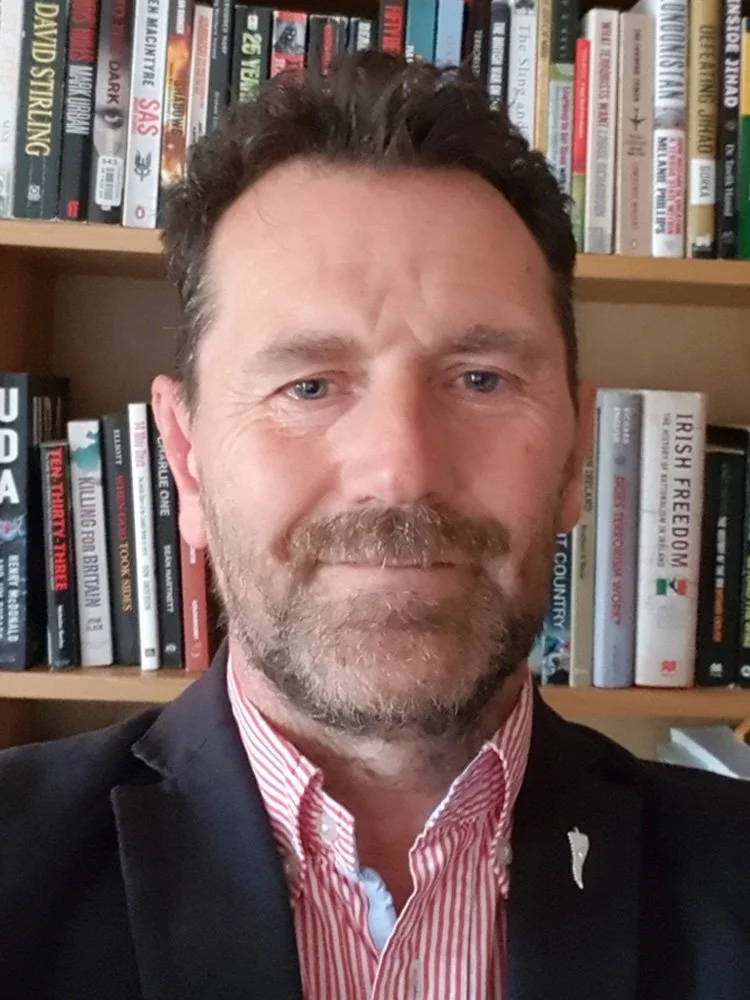
Stephen Atkinson, M.A., QPM
Born in Belfast, Steve has thirty years of policing experience, twenty three of which he practiced in the operational delivery, development and training of covert operations and specialist tactical command in both hostile and normalising policing environments in Northern Ireland. For the last two and a half years of his service he had tactical command for the delivery of high risk CT covert policing and threat management operations in the northern region of the province. Steve has extensive teaching experience across specialist policing, command, threat management and contingency planning. He has instructed and lectured to a variety of diverse institutions such as: the Norwegian Police University College, Oslo; Georgetown University Washington DC; The Centre for the Study of Terrorism and Political Violence, University of St Andrews; the ATLAS Programme, Europol; Bureaux of Counter Terrorism, Warsaw and was an associate lecturer in Criminology at the University of Ulster in Belfast. Steve was a UK liaison officer on the ATLAS CT programme for the sharing of information and a Programme Manager on the ‘Five Eye’ Leadership in Counter Terrorism (LinCT) programme for the past four years. He has a MA in Violence, Terrorism and International Security from Queens University Belfast and a Certificate in Education from Canterbury Christ Church University, England. In 2013 he was awarded the Queens Police Medal by her Majesty the Queen in her New Year’s Honours list for services to policing.
-
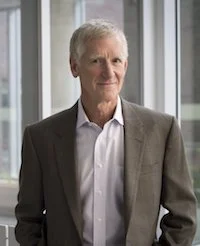
William C. Banks
William C. Banks is a Syracuse University College of Law Board of Advisors Distinguished Professor and Emeritus Professor at the College of Law and the Maxwell School as Professor of Public Administration and International Affairs. During 2015-2016, Banks was Interim Dean of the College of Law. A teacher and scholar at SU for more than four decades, Banks was the Founding Director of the Institute for National Security and Counterterrorism (INSCT), now the Syracuse University Institute for Security Policy and Law (SPL).
A highly regarded and internationally recognized scholar, topics of Banks’ wide-ranging research include constitutional law and national security and counterterrorism law; laws of war and asymmetric warfare; drones and targeted killing; cybersecurity, cyberespionage, and cyber conflict; emergency powers; emergency preparedness and response; civilian-military relations; and government surveillance and privacy.
Among his other major works, Banks is the co-author of Constitutional Law: Structure and Rights in Our Federal System (Carolina Academic Press, 2019; with Rod Smolla) and Soldiers on the Home Front: The Domestic Role of the American Military (Harvard, 2016; with Stephen Dycus). He is the author, co-author, and/or editor of numerous other titles, including National Security Law (Wolters Kluwer, 2020) and Counterterrorism Law (Wolters Kluwer, 2020)—books that have helped set the parameters for these fields of study—as well as Counterinsurgency Law: New Directions in Asymmetric Warfare (Oxford UP, 2012) and New Battlefields/Old Laws: Critical Debates on Asymmetric Warfare (Columbia UP, 2011).
Among his public service appointments, Banks has served as a Special Counsel to the US Senate Judiciary Committee (for the confirmation hearings of Supreme Court nominee Stephen G. Breyer); as a Member and Chair of the Advisory Committee of the ABA Standing Committee on Law and National Security; as a Member of the InfraGard National Members Alliance Board of Advisors; on the Advisory Council for the Perpetual Peace Project; on the Executive Board of the International Counter-Terrorism Academic Community (ICTAC); as an Editorial Board member at The International Centre for Counter-Terrorism in The Hague, The Netherlands; and as a Distinguished Fellow of the Institute for Veterans and Military Families at Syracuse University. Banks is Chair of the ABA Standing Committee on Law and National Security (August 2020-) and the Editor-in-Chief of the Journal of National Security Law & Policy.
-

Gina M. Bennett
Gina M Bennett is a retired CIA seasoned counterterrorism specialist and member of the Senior Analytic Service who authored the earliest warnings in the 1990s about the growing danger of the movement Osama bin Laden fomented. She served for 34 years in the counterterrorism mission in numerous roles that spanned both tactical and strategic. These roles included serving as a terrorism targeter, management positions at both CIA’s Counterterrorism Center and the National Counterterrorism Center, the Program Manager for Analytic Tradecraft Program of the CIA’s Directorate of Analysis, deputy National Intelligence Officer at the National Intelligence Council, and Senior Strategist and Advisor to the Directorate of Strategic Operational Planning, where she contributed to authoring and monitoring the implementation of national security strategies.
Ms. Bennett is often featured in documentaries and other media profiling her role in counterterrorism and as a pioneer for women in National Security and Intelligence careers, which she now continues as the Strategic Advisor for Girl Security, a nonpartisan, nonprofit organization which seeks to empower, secure, and advance young girls into national and international security missions.
Ms. Bennett is an Adjunct Professor at Georgetown University’s Center for Security Studies, where she teaches both Ethics in Intelligence Support to National Security and Hunter-Gatherer National Security. She is a member of the Board of Directors of the Alturas Institute, a nonpartisan, nonprofit organization dedicated to advancing American Democracy by promoting the Constitution, civic education, gender equality and equal protection of the law.
She is the mother of five children, who were the source of inspiration for her two "National Security Mom" books comparing national security to parenting: "National Security Mom: While Going Soft Will Make America Strong," and "National Security Mom 2: America Needs a Time-Out." She has written numerous articles for a variety of journals.
Ms. Bennett earned her Bachelors degree in Economics and Foreign Affairs from the University of Virginia and her Masters in Security Studies as a Distinguished Graduate of the Marine Corps War College.
-
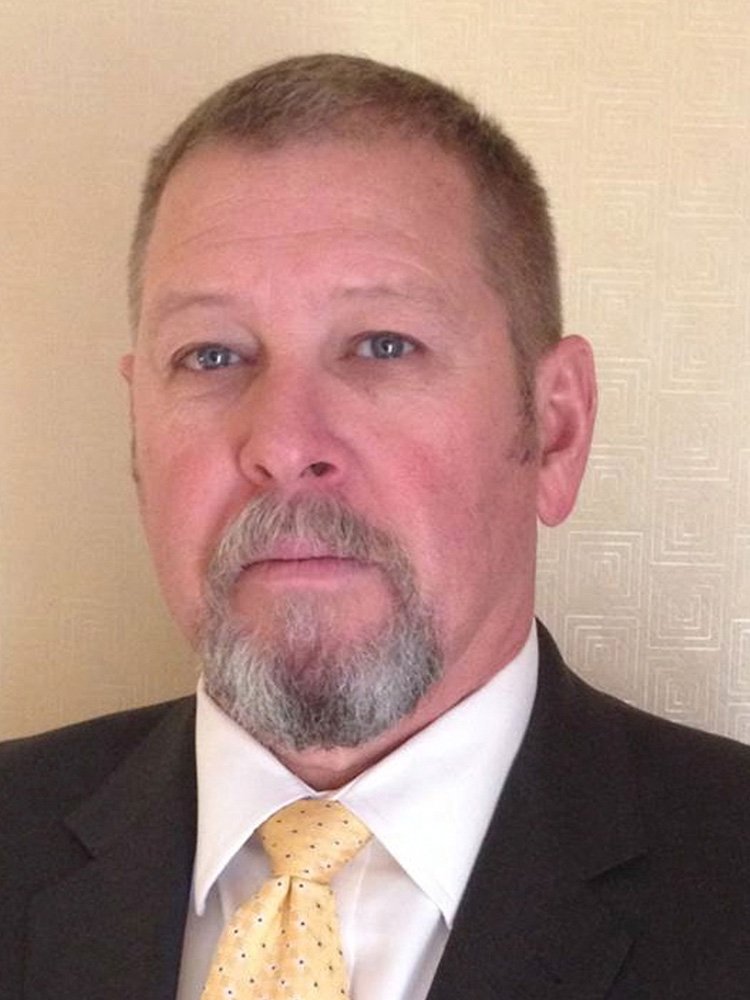
David W. Brannan, Ph.D.
David W. Brannan retired from a career in domestic law enforcement due to injuries sustained fighting in the line of duty. During that time, he served in a variety of positions with a six-year emphasis on SWAT. David was a political scientist for the RAND Corporation for five years working on areas related to terrorism, insurgency and law enforcement with particular interest in theologically motivated political activism. He served in Iraq at the request of the Department of Defense as the Director of Security Policy for the CPA/MOI where he was wounded by an insurgent mortar attack during operations related to his expertise outside Baqubah, at FOB Warhorse. His work in Iraq provides a unique perspective on creating internal security forces specifically designed to deal with insurgency and terrorism in a lawless climate. David lectures on terrorism, ethics, discourse analysis and other homeland security issues for the Center for Homeland Security and Defense at the Naval Postgraduate School in Monterey CA. He blends a rigorous analytical approach based on Social Identity Theory and Social Identity Analytical Method with his practical field experiences leading students to an informed and highly useable understanding of the issues related to terrorism and homeland security. David holds a Joint Honours MA in International Relations and Theology as well as a PhD in Theology from the University of St. Andrews, Scotland. His dissertation was entitled, Violence, Terrorism and the role of Theology. His book, A Practitioner’s Way Forward: Terrorism Analysis is a result of 10+ years of working with practitioner students at the Naval Postgraduate School.
-

Jeffrey Connor, Ph.D.
Jef provides organizational and leadership development for leaders in a wide range of organizations. Most recently his primary work has been with the US Intelligence Community for whom he has written several internal case studies and delivers executive education. He has delivered programs on leadership in over twenty-five countries. Jef is an adjunct professor in the Center for Security Studies at Georgetown University where he facilitates the National Security Critical Issue Task Force graduate seminar. For twenty years Jef was the CEO of a large professional service organization and, for over twenty-five years, was a Lecturer on Organizational Behavior at Harvard Medical School and the Graduate School of Education where he co-taught a seminar on Organizational Diagnosis. Jef received a master’s degree in psychology from Boston College, and a Ph.D. in administration, policy, and research at Brandeis University. He is also a guitar and furniture builder.
-

Carol Rollie Flynn, M.S.
Rollie is a 30-year veteran of the Central Intelligence Agency (CIA) where she held senior executive positions including Director of the CIA’s Leadership Academy, Associate Deputy Director of the National Counterterrorism Center, Executive Director of the CIA Counterterrorism Center, Director of the Office of Foreign Intelligence Relationships, Chief of Station in major posts in Southeast Asia and Latin America, and Clandestine Operations Officer in Africa and Southeast Asia. Rollie is also an adjunct Professor at Georgetown University’s Walsh School of Foreign Service/Security Studies Program where she teaches graduate seminars on intelligence and national security. She serves as Adjunct Staff at Rand Corporation, is a member of the Council on Foreign Relations, and a senior fellow at the Foreign Policy Research Institute. She has a Bachelor of Arts degree from Wellesley College and a Master’s of Science in Cyber Security from University of Maryland/University College.
-

Elizabeth Stanley, Ph.D.
Elizabeth A. Stanley, Ph.D., is a professor in Georgetown University’s School of Foreign Service and Department of Government. She speaks, teaches, and writes on topics related to resilience, decision-making, political psychology, civil-military relations, and international security. She is the award-winning author of Paths to Peace, about the domestic politics of war termination, and the international bestseller Widen the Window, about the neurobiology of stress, trauma, and resilience. She also co-edited Creating Military Power, about military effectiveness. She is the creator of a resilience training program, Mindfulness-based Mind Fitness Training (MMFT)®, tested through four neuroscience studies with the U.S. military and taught to many thousands in civilian and military high-stress environments around the world. Earlier in her career, she served as a U.S. Army military intelligence officer in South Korea, Germany, and on two peacekeeping deployments to the Balkans. Her research has been supported by many funders, including the National Science Foundation, the U.S. Department of Defense, the Wilson Center, and the Smith Richardson Foundation. She holds degrees from Yale, Harvard, and MIT, and is also a certified practitioner of Somatic Experiencing, a body-based trauma therapy. (www.elizabeth-stanley.com)
-
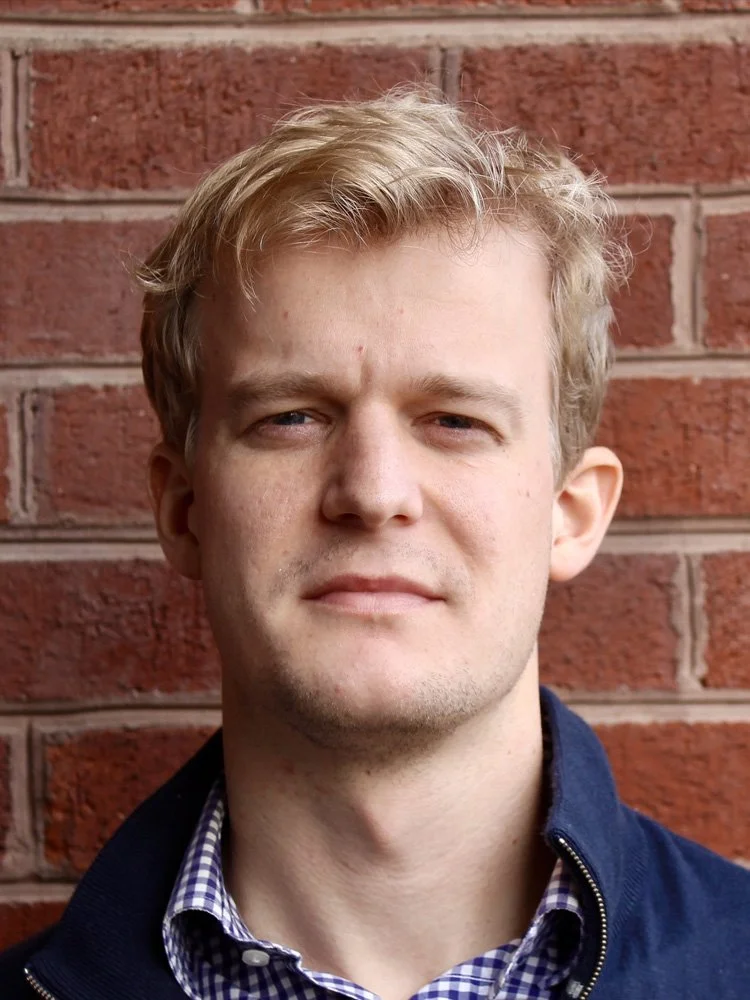
Jacob Ware, M.A.
Jacob Ware is a research fellow at the Council on Foreign Relations (CFR), where he studies domestic and international terrorism and counterterrorism. He was previously a research associate for counterterrorism at CFR. Ware is also an adjunct professor at Georgetown University’s Edmund A. Walsh School of Foreign Service, where he teaches a class on domestic terrorism. He serves on the editorial boards for the academic journal Studies in Conflict & Terrorism and the Irregular Warfare Initiative at the Modern War Institute at West Point, and his work has appeared in publications including Foreign Policy, War on the Rocks, National Interest, and the Wall Street Journal. Ware holds an MA in security studies from Georgetown and an MA (Hons) in international relations and modern history from the University of St Andrews.
-
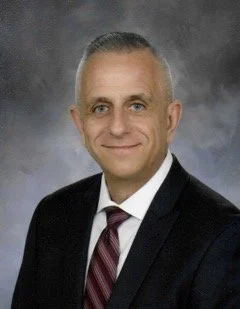
James D. Madia, DPPD
James D. Madia is a senior energy security and risk management professional with 39 years of experience in the emergency response community. He is currently the Sr. Manager of Infrastructure Security & Compliance at Southern California Edison, and an independent consultant to government and business.
Dr. Madia retired from the Inglewood Police Department in 2014 at the rank of Captain, serving as a command-level executive. During his 29-year law enforcement career, James served in executive and senior management roles directing the Emergency Response Team, Special Operations Division, Scientific Services, Media Relations, and the Hostage Negotiations Team. James is a subject-matter expert in homeland security, including critical incident response, infrastructure protection, and emergency management.
James holds a Doctor of Policy, Planning & Development degree from the University of Southern California and a Master of Arts in Security Studies from the United States Naval Postgraduate School, Center for Homeland Defense and Security.
-

V.S. Subrahmanian
V.S. Subrahmanian is the Walter P. Murphy Professor of Computer Science and Buffett Faculty Fellow in the Buffett Institute of Global Affairs at Northwestern University. He heads the Northwestern Security & AI Lab. He was previously the Dartmouth College Distinguished Professor in Cybersecurity, Technology, and Society and Director of the Institute for Security, Technology, and Society at Dartmouth. Earlier, served as a Professor of Computer Science at the University of Maryland from 1989-2017 where he also served for 6+ years as Director of the University of Maryland's Institute for Advanced Computer Studies.
Prof. Subrahmanian is one of the world’s foremost experts at the intersection of AI and security issues. He pioneered the development of machine learning and AI-based techniques to analyze terror groups, cybersecurity, text, geospatial, and social network based data in order to generate forecasts of various types of outcomes and help reshape terror group behaviors. He has written nine books including ones on Lashkar-e-Taiba, Indian Mujahideen, and Boko Haram, two on cybersecurity, edited ten books, and published over 300 refereed articles in leading journals and conferences. A book on the terror group JNIM is currently under contract.
He is an elected Fellow of the American Association for the Advancement of Science and the Association for the Advancement of Artificial Intelligence and received numerous other honors and awards. His work has been featured in numerous outlets such as the Baltimore Sun, the Economist, the Wall Street Journal, Science, Nature, the Washington Post, American Public Media and more. He serves on the editorial boards of numerous journals including Science, and currently serves on the Board of Directors of SentiMetrix, Inc.
He previously served on the Research Advisory Board of Tata Consultancy Services, the Board of Directors of the Development Gateway Foundation (set up by the World Bank), DARPA's Executive Advisory Council on Advanced Logistics and as an ad-hoc member of the US Air Force Science Advisory Board. He has spoken at prestigious venues such as the United Nations, Capitol Hill, and the Mumbai Stock Exchange.
-
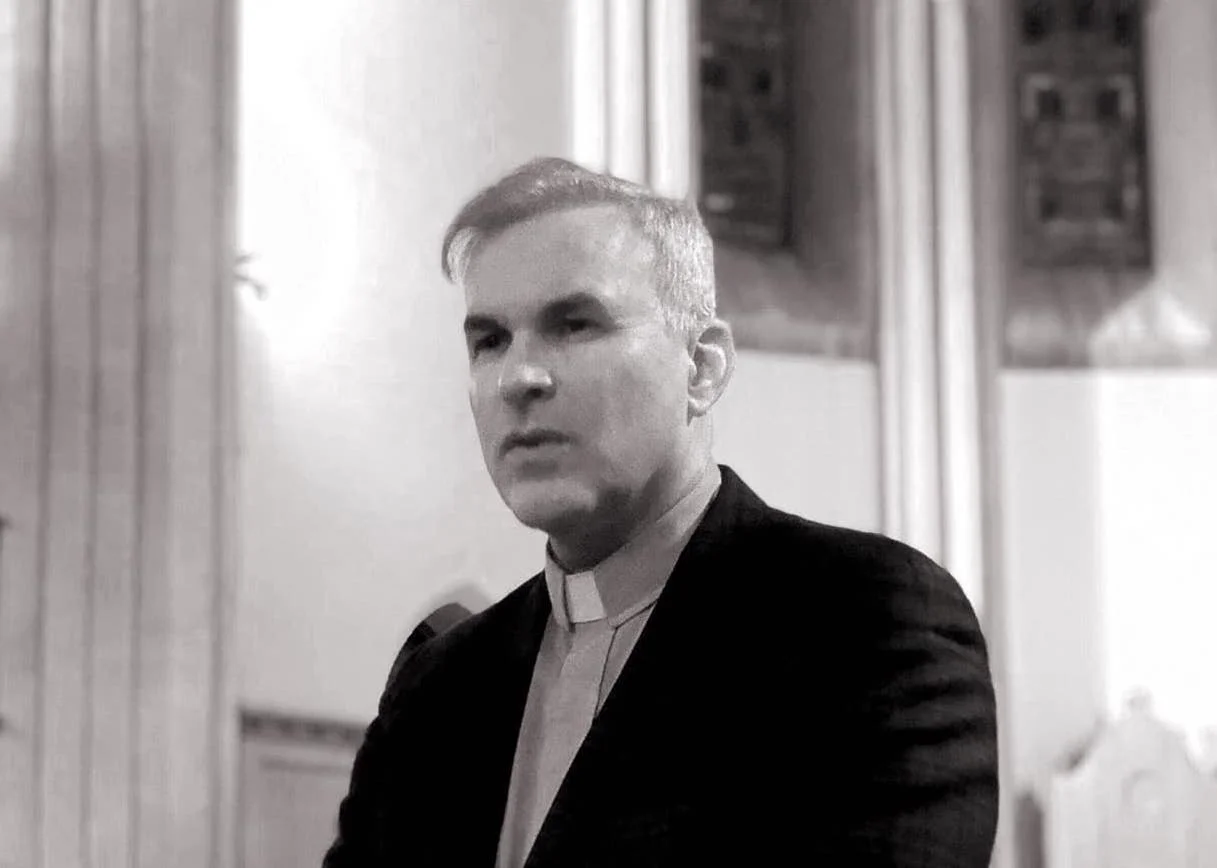
Reverend Richard Tafel
Rich Tafel is a graduate of Harvard Divinity School who has spent his career bringing unlikely stakeholders together to create sustainable solutions in business, public health, civil rights, social impact, and faith-based community coalitions.
Along with the Dean of Pepperdine School of Public Policy, he co-founded the American Project, which addressed isolation and loneliness in America. He's a senior fellow at George Washington University's Center for Excellence in Public Leadership and holds a Business and Sustainability Program certificate from the University of Cambridge. He co-founded the Workplace Wellness Council of Mexico and launched the nation's first state-wide social impact competition in Michigan in 2014. He's the author of Party Crasher (Simon&Schuster 1999). He served as the co-chair of the Christian-Muslim Dialogues for the National Council of Churches. He served as the founding Director of Raffa Social Capital Advisors. He serves as pastor at the Church of the Holy City in Washington, DC.
-
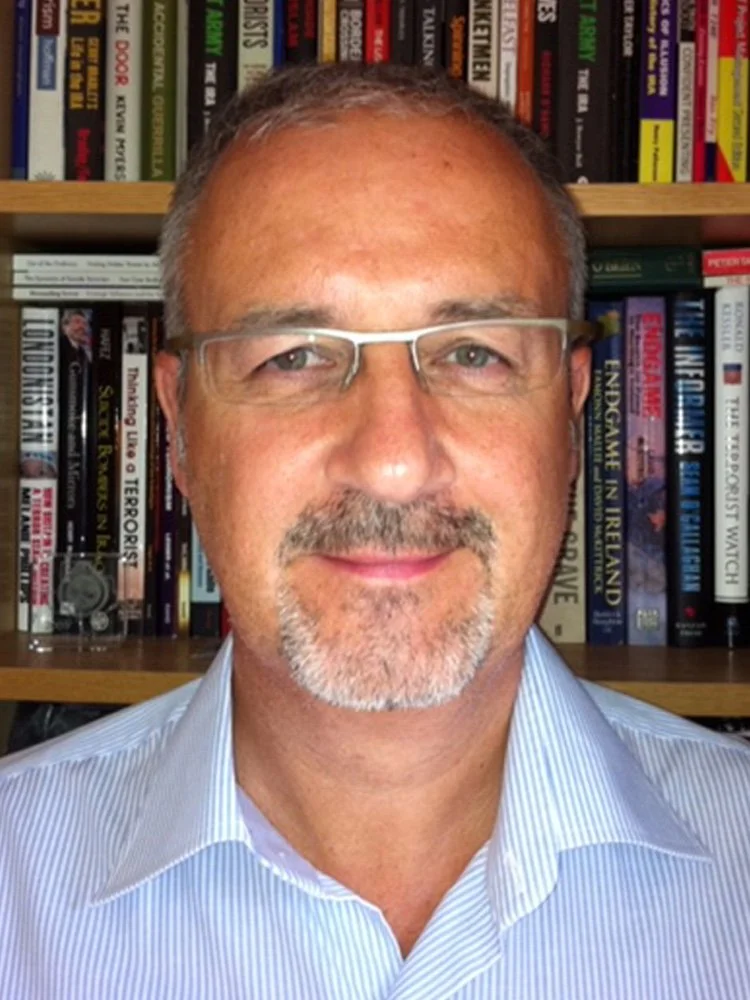
In Memoriam
Mark Cochrane, M.A.
Mark Cochrane is a former Police Officer with over 28 years service in the Police Service of Northern Ireland (PSNI) and the Royal Ulster Constabulary George Cross (RUC GC). He has extensive experience of policing and counter terrorism. He has taught and lectured at diverse venues including: the Swedish Defense College, Stockholm; the Irregular Warfare Course, US Marine Corps University; West Point Military Academy; Combating Terrorism Centre, West Point; the National Executive Institute (NEI) and the National Academy (NA) at Quantico; FBI JTTF Regional training, New York; Bush School of Government at Texas A & M; Georgetown University; the Woodrow Wilson Centre Washington DC; and the RAND Corporation. In 2008 Mark completed a Fulbright Police Fellowship with the Federal Bureau of Investigation in New York.. Mark holds an MA in Violence, Terrorism and Security from Queen’s University Belfast; a BSc (Hons) in Criminology and Criminal Justice from the University of Ulster and a Post Graduate Certificate in Education from Canterbury Christ Church University. He is a self-employed consultant engaged in work with a number of agencies and is an associate lecturer in Criminology at the University of Ulster in addition to lecturing at U.S. academic and law enforcement institutions.
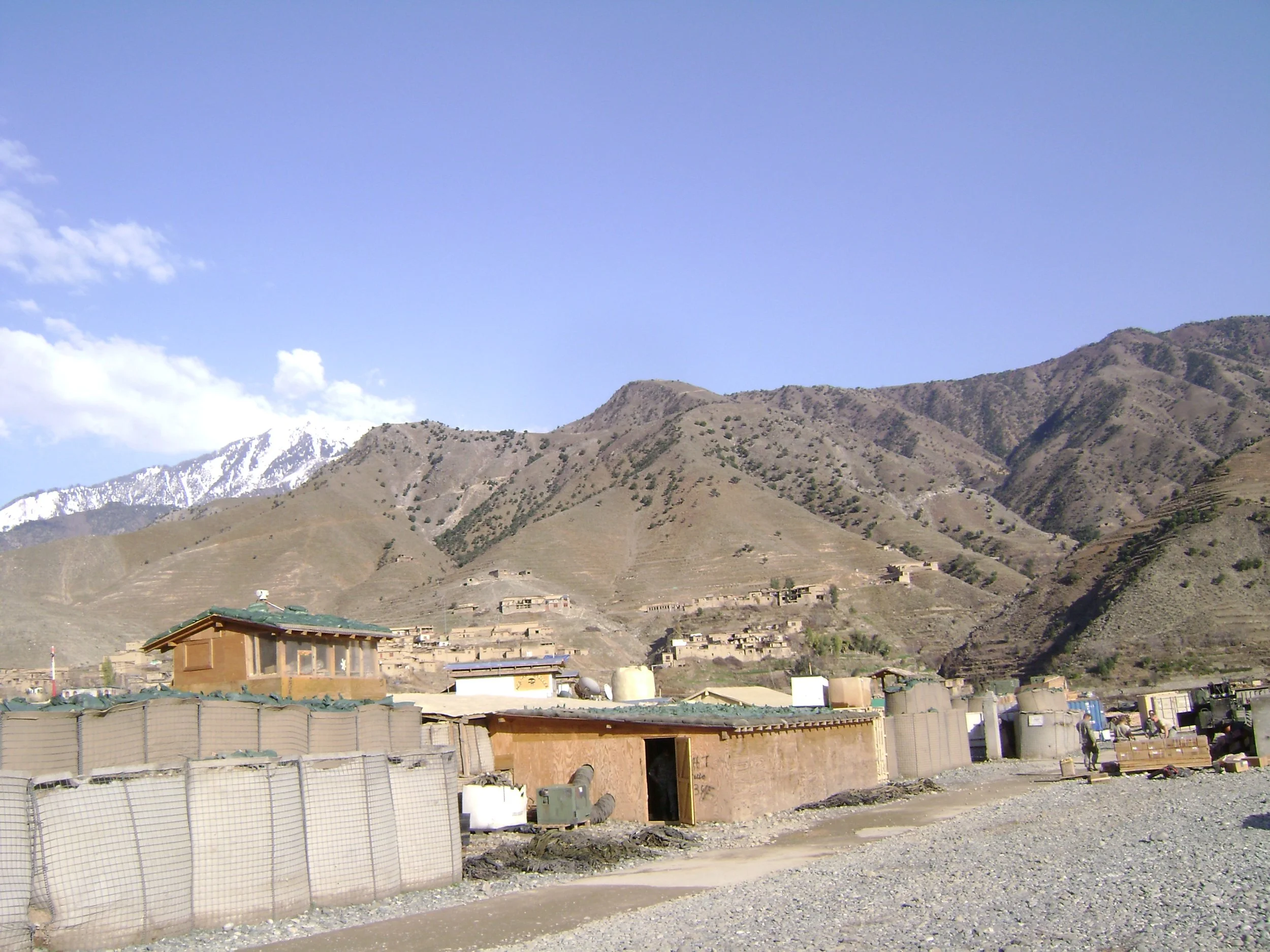
Our Specific Areas of Focus
-
Effective leadership and decision-making depends upon a leader's capacity to access choices both on a daily basis and especially at times of acute stress and challenge. Identifying and assessing failures of leadership at the tactical/implementation and strategic/policy levels is thus critical to understanding where, why, and how problems arise, why a situation turned out so badly and what can be done through better leadership, planning, and vision to better avert these problems.
-
Learning how to create more effective relationships both up and down the chain of command, especially during stress and conflict, is of vital importance in today's often confrontational and violent policing environments. Accordingly, THG provides state-of-the-art instruction on building personal resilience through instruction and exercises to enable leaders to recover from prior stress, heal from trauma, and emerge as stronger, respected, and valued leaders.
-
Constantly shifting global issues and national priorities impact old, new, and ongoing relationships between governments and their citizens. These constantly shifting realities demand relevant analysis of situations and security environments where government and non-state actors regularly interact and sometimes compete. Relationship changes or distant conflicts can have significant impacts on an emerging security situation. Our practitioner-scholars have a variety of advanced degrees in International Relations, security studies, and other relevant disciplines. In addition, they bring significant military or law enforcement operational experience with these same issues. THG’s proven and effective merging of top-tier academic, policy and operational insights thus provide government and private-sector decision makers with these key advantages.
-
THG gives government and business decision makers access to the most current understanding of terrorist threats and relationships. Engagement with knowledge and insight of dangerous environments and advice on how to mitigate these threats often is the difference between success and failure. Members of THG have contributed significantly to both domestic and global counterterrorism efforts: bringing on-the-ground experience in analyzing, advising, and working in active conflict zones around the world. Our founder and CEO, Dr. Bruce Hoffman is a world leading author, analyst, and advisor in the field.
-
Politically motivated violence and threats are real and dangerous, yet criminal activity is often the most pervasive threat to personnel, capital, and resources. Whether the organization is moving into new regions, countries or localities, insight on the threat from criminals, especially involving insider information and assistance, is essential. THG can provide site analysis for greater defensibility and personnel safety. THG specifically focuses on the range of new digital-era threats including: social influence operations, artificial intelligence-enabled attacks (including unmanned aviation systems), ransomware and IP theft.
-
Enhancing law enforcement understanding the locus of power to conduct counterterrorism investigations, better understand the limits of that power as applied through a variety of surveillance techniques in a range of settings; and, to explore constitutional protections afforded individuals who find themselves subject to surveillance. Areas of specific focus include Fourth Amendment rights; checkpoint searches; watch listing; profiling and travel bans; and the role of the military in domestic counterterrorism.
-
Field-proven tactics, techniques and procedures to help law enforcement officers and/or security personnel respond to an active threat to fit the specific time requirements of the client. THG training places a heavy emphasis on effective, coordinated response that safely integrates existing emergency action plans, on-site security forces, first responders and tactical units with a specific focus on on active threat survival essentials, response and rapid reaction force; room clearing tactics; high threat protection; and clandestine fieldcraft.
Constantly shifting global issues and national priorities impact old, new, and ongoing relationships between governments and their citizens. These constantly shifting realities demand relevant analysis of situations and security environments where government and non-state actors regularly interact and sometimes compete. Relationship changes or distant conflicts can have significant impacts on an emerging security situation. Our practitioner-scholars have a variety of advanced degrees in International Relations, security studies, and other relevant disciplines. In addition, they bring significant military or law enforcement operational experience with these same issues. THG’s proven and effective merging of top-tier academic, policy and operational insights thus provide government and private-sector decision makers with these key advantages. Click the focus areas below to learn more:


